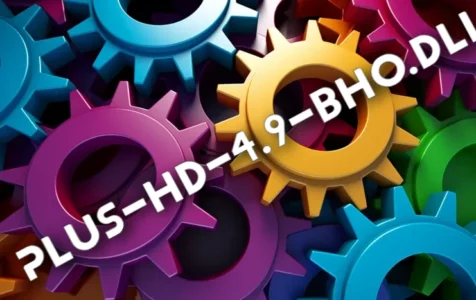Let’s talk about a DLL file named Plus-HD-4.9-bho.dll that has been stirring up questions among PC users. DLL stands for Dynamic Link Library, which in Windows operating systems is a file that contains code and data used by multiple programs simultaneously. This particular file is a Browser Helper Object, or BHO, a component designed for Internet Explorer to add functionality such as toolbars, ad-blocking, or accessibility features.
However, not all BHOs are created equal, and that’s especially true for Plus-HD-4.9-bho.dll. Some users might recognize this file as part of a program called Plus-HD, a software developed by Plus HD that pledges to upgrade video quality on the internet. The Plus-HD-4.9-bho.dll file typically resides in a subfolder within “C:\Program Files (x86)” and might appear innocuous at first glance.
Now, the real question is: Is it safe to run this file on your computer? Well, not quite. Several reputable anti-malware solutions have detected Plus-HD-4.9-bho.dll as a potentially harmful extension. What might have seemed like a useful tool is, in reality, classified as adware—a type of malware that bombards you with unwanted advertisements, can slow down your computer, and might even alter your browser’s search engine and homepage without consent.
If you can’t remember installing Plus-HD-4.9 BHO software, that’s because it often sneaks its way onto systems bundled with other freeware products, such as a YouTube Downloader or a PDF Converter. The file’s digital signature comes from Kimahri Software Inc., but don’t let that fool you. It’s known to monitor applications and change the behavior of Internet Explorer, which can cause numerous issues and privacy concerns.
Expert Tip: For smoother PC performance, consider using a PC optimization tool. It handles junk files, incorrect settings, and harmful apps. Make sure it's right for your system, and always check the EULA and Privacy Policy.
Special offer. About Outbyte, uninstall instructions, EULA, Privacy Policy.
Is there a community discussing these issues? Absolutely. While you can hunt down user experiences about removing or dealing with the Plus-HD-4.9 BHO, keep in mind that at the time of writing this, there isn’t an abundance of user opinions.
Is It a Virus or Malware? How to Fix?
While not a virus in the traditional sense, Plus-HD-4.9-bho.dll is indeed considered adware and should be treated with caution. It’s crucial to remove this add-on to safeguard your computer’s performance and your privacy.
Caution!
While this article aims to provide detailed information about Plus-HD-4.9-bho.dll and its impact on computer systems, it's important to note that our assessment is based on available data and reported user experiences. Software and its classification can evolve, and what might be considered adware today could change with future updates or further analysis. We encourage readers to consult with credible sources or cybersecurity experts for the most current information and advice. Stay informed and safeguard your digital environment!
How to Remove Plus-HD-4.9-bho.dll
Here’s a step-by-step guide to getting rid of this pesky BHO:
1. Utilize a reliable anti-malware tool to scan your computer, such as a well-reviewed security software available on the market. They can identify and remove malicious files effectively.
2. If you prefer manual removal, go to your Control Panel, select “Programs and Features,” find any software related to Plus-HD, and uninstall it.
3. Reset your Internet Explorer settings to their default state to undo any changes made by the BHO.
For visual assistance or a guided approach, there are various online tutorials available to help with the removal process.
Remember that keeping your software up to date, backing up your data regularly, being cautious with freeware, and avoiding suspicious downloads can prevent such adware infiltrations in the future.
To those troubled by Plus-HD-4.9-bho.dll, rest assured that once you’ve purged this file from your system, your digital world will be brighter—or at least, free of unwanted ads and potential privacy invasions. Remember, when in doubt, seek out a reputable technology forum or digital community for advice; they can be invaluable resources.
